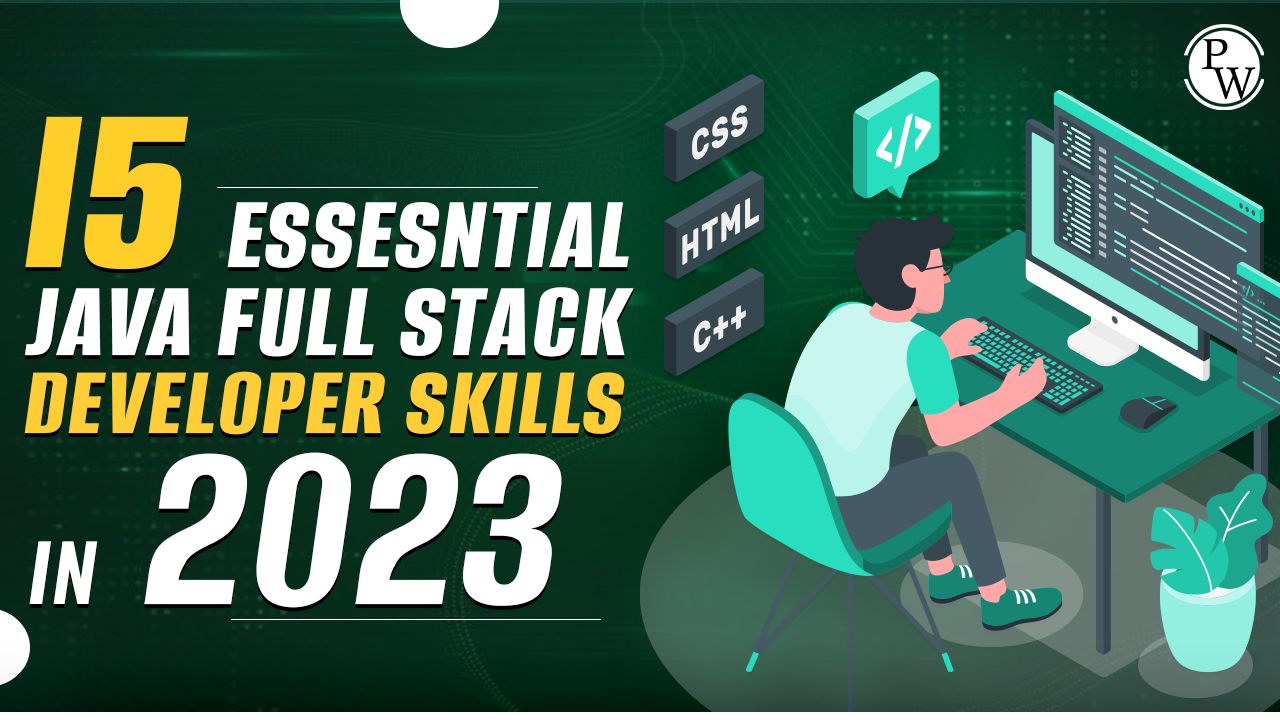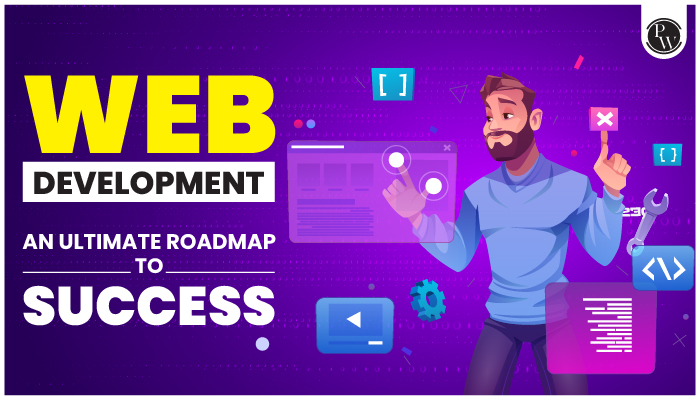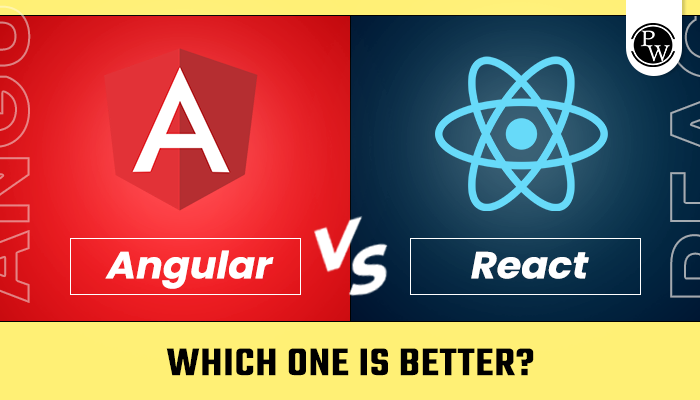Behind every successful Java software, you’ll find a skilled Java programmer beaming with java full stack developer skills. These experts are highly sought after because they are great at creating dependable and top-notch software.
Whether you’re new to this or already have experience, there are certain skills you’ll need to excel in this field. It’s worth noting that in 2023, the demand for full-stack web developers is huge. Companies want web developers who can handle various aspects of a website’s setup.
So, if you’re looking to grow your career in this rapidly expanding field, make sure you have the right Java Full Stack Developer skills. The blog states 15 java full stack developer skills you need.
Java Full Stack Developer – An Overview
A Java Full Stack Developer is someone who has the skills to create both the parts of a software application that users see and the parts that run behind the scenes. In other words, they can handle both the client side (what users interact with) and the server side (the hidden part) of a software program. A Java Full Stack Developer works on all aspects of a software application, starting with creating the user interface and moving on to the technical parts like the database, server, APIs (ways for different parts of a program to talk to each other), and version control systems (tools to manage changes in the software).

Having java full stack developer skills equips a person to manage an entire development project without needing help from others. They have a deep understanding of Java and its tools, including Core Java, servlets, APIs, database management, web design, and more. This expertise is valuable because it can save time and money by allowing the developer to smoothly switch between working on the user interface and the technical aspects of the program.
In simple terms, a Java Full Stack Developer is someone who uses the Java programming language to create all parts of a software application, from what users see to what happens behind the scenes. They need to know Java inside and out to do this job effectively.
What is Front-End Web Development?
Front-end web development is the part of building a website that focuses on what users see and interact with. It’s like the design and layout of a house, making sure it’s welcoming and easy to use. Front-end developers work on things like pictures, graphics, animations, how information is arranged, and how you navigate around the website. They want to make the website or app look good and function smoothly for you.
What is Back-End Web Development?
Back-end web development, on the other hand, is like the hidden machinery that makes a website work. It’s the part you don’t see but is crucial for making the website interactive and user-friendly. Back-end developers are responsible for writing the code, managing the database, fixing any problems that might come up, creating ways for different parts of the website to talk to each other, and designing the underlying structure.
Front-end and back-end development focus on different aspects of a website, but they work together to create a website that’s not only visually appealing but also functions well, giving users a great online experience.
Now, let’s see the top skills you need to become a full stack Java developer.
15 Essential Java Full Stack Developer Skills in 2023
Here are the best java full stack developer skills you must have.
-
Git and GitHub
When a developer is learning Java full stack skills, they also need to understand Java backend development. In this context, they’ll discover that Git and GitHub are two important but different things. Git and GitHub are like tools for developers. Git keeps track of changes in computer code, making it easy to work on big projects. It’s like an “undo” button for code. GitHub is where people save their Git code, and it’s like a shared online workspace for developers. They can use it to work together, even if they’re far apart. This helps them make better code and learn from each other. So, Git is for managing code changes, and GitHub is for sharing and collaborating with others on code.
-
JavaScript
Knowing JavaScript, a programming language, is essential for developers to add more than just text to a web page. JavaScript is used to create web-based applications that can do things like show real-time updates, interactive maps, animated graphics, video playlists, and more. There are various frameworks in the world of JavaScript, such as React Native, Ionic, and Angular, which a Java developer should be familiar with. These frameworks make it easier and faster to develop using JavaScript. Facebook, for instance, uses JavaScript frameworks like React and React Native to build its online community.
JavaScript is also used in the virtual reality industry for making games that work in web browsers. GitHub is another example. When it comes to server-side applications, Node.js, a runtime environment for JavaScript, is used to load content without worrying about the limitations of web browsers. For front-end development, JavaScript is used to create interactive user experiences, like the ability to scroll to the bottom of a web page by dragging a drop-down arrow.
-
HTML/CSS
Java front-end developers need to know languages like HTML, CSS, and JavaScript to create websites and apps. These languages help users access and interact with the sites and apps. The front-end developer decides how things like images and navigation should be arranged, focusing on the appearance and layout for a user-friendly experience.
HTML (Hyper Text Markup Language) is the first building block of a website. It defines the structure and content of web pages, such as paragraphs, bullet points, data tables, and images. HTML uses elements to format and present content to users. These elements are combined to create a complete HTML page. HTML is also used for internet navigation by adding hyperlinks to connect different web pages and sites. Additionally, it’s used for organizing and formatting web documents, similar to how Microsoft Word formats text.
CSS (Cascading Style Sheets) is separate from HTML and controls the visual presentation of web pages, including colors, layout, and fonts. It provides flexibility to make web pages look good on various devices and screen sizes, from large screens to small screens and even printers. CSS is used with XML-based markup languages to style web content.
-
Databases and Web Storage
When learning Java full stack skills, it’s essential to understand databases and web storage. Think of a database like a digital filing system for information, organized by a computer. Databases are managed by special software, and they store data in tables, making it easy to access and manage.
Web Storage, on the other hand, is a way for web applications to store data in your web browser. It doesn’t send data to a distant server and keeps it even when you close your browser.
-
Spring Frameworks
The Spring framework makes developing web applications in Java easier. It uses new techniques to handle business tasks and is lightweight, making it great for building enterprise applications.
-
DevOps Tools (Jenkins, Docker, and Kubernetes)
DevOps tools like Jenkins, Docker, and Kubernetes help streamline project tasks and speed up software development. Jenkins is used for continuous integration, Docker packages and deploys software quickly, and Kubernetes automates the management of containerized applications.
-
Web Architecture
Web architecture is how cloud-based computer programs, often websites, are designed and implemented. It includes everything needed for creating user-friendly applications, from design and infrastructure to security and scalability. Good web architecture is the foundation for a successful project.
-
DevOps Tools (Jenkins, Docker, and Kubernetes)
For a Java developer, understanding how Jenkins works in integrating and deploying code is crucial. It’s also important to learn tools like Ansible, Docker, and Kubernetes. Experienced Java engineers who follow best coding practices, create development environments, and design scripts need to be skilled in using DevOps tools.
-
NPM
NPM, short for Node Pack Manager, is a tool that helps manage different software modules for Node.js. It’s known for its versatility, as it can be used for various tasks like building, publishing, and installing Node.js programs.
-
Security
As the entire application development process happens online, there are security risks at every layer of web development. Every developer should have a basic understanding of security and the steps needed to address these concerns.
-
Personal Qualities
A great Full Stack Developer needs a mix of technical and soft skills. Soft skills include time management, attention to detail, teamwork, discipline, and the ability to accept feedback.
-
Mockito and JUnit
Unit testing is a crucial skill for Java full-stack developers. A skilled Java programmer creates unit tests for their code. Mockito and JUnit are tools that can help with proper unit testing.
-
React or Angular
Developers should be proficient in front-end frameworks like Angular and React. These are highly sought-after technical skills for Java full-stack developers. These JavaScript frameworks have brought innovation to web development, making them essential skills to learn, alongside other technologies like JSP, JQuery, and Servlets, because they’re widely used in web development projects. Learning React or Angular is highly recommended in today’s web development landscape.
-
Version Control System (VCS)
Java developers should know how to create and manage database queries. The version control system is like a tool that helps control and keep track of changes in code. It makes it easy for developers to see what changes have been made to the codebase. Git is a popular open-source tool that not only manages development tasks but also records changes, so you can go back to previous versions if needed. It speeds up the process of making changes to code, websites, documents, and more.
Having a profile on GitHub allows developers to work together as a team and keep a record of the latest changes made to the codebase using Git commands.
-
Java Server Pages
Java Server Pages (JSP) is a technology used on the server side of web applications. It’s all about creating web pages that can change and respond dynamically. JSP uses special tags to mix Java code into regular HTML pages. It’s a web technology for making dynamic web pages that work independently. JSP has some great features like being portable, flexible, and easy to maintain because it doesn’t depend on the specific web browser or server. This means you don’t have to recompile things when you make changes. It also helps developers write less code by using tags like “action” or custom tags, making application building quicker.
Java Full Stack Developer Salary in India
Obtaining a Certificate in Web Development opens the door to a rewarding career as a Full Stack Developer in Java. This role allows developers to work on various aspects of software and app development, which can save time and resources for their employers. To command a good salary, a Java full stack developer needs to have a comprehensive set of skills listed on their resume.
In India, salaries can range from INR 2.4 to 14.3 lakhs per year, with an average annual salary of INR 5.5 lakhs, depending on their skills and experience. In the United States, the average salary for a Full Stack Developer is $119,828 per year, but this can vary based on the developer’s experience and location.
Conclusion
Java Full Stack Developer Skills are essential for a dynamic and versatile job role. It suits individuals who are open to learning and have a wide range of skills. Keeping your learning journey efficient and staying motivated is crucial. As you progress in your career, you’ll acquire the skills necessary to excel in this field, opening up various job opportunities at different levels of expertise.
You can learn some of the skills mentioned above in Full Stack Web Development Course by Physics Wallah. The experts will teach Javascript, HTML and more.
FAQs
What is the role of a Java Full Stack Developer?
A Java Full Stack Developer is responsible for working on both the visible and hidden parts of a software application. They handle the user interface, server-side processes, and everything in between, making them versatile professionals in the world of software development.
Is a career as a Java full stack developer a good choice for 2023?
The tech industry is buzzing with a high demand for full stack web developers this year. Companies are actively seeking developers with a wide range of skills to handle all aspects of web applications. If you're looking to establish your career in one of the most sought-after job roles, considering a path as a Java full stack developer can be a smart move.
What's the future of Java?
Java remains a strong presence in 2023, and its future looks promising with a few adjustments and adaptations. Looking ahead, pursuing a Java Developer certification course can blend theoretical knowledge with practical experience, offering hands-on exposure to real-world projects.
Is Java an outdated language?
Java is very much alive and kicking! It remains a compelling language in software development, constantly evolving to cater to the requirements of modern developers and businesses.
What should a Java developer know in 2023?
In 2023, a Java developer should possess strong Java programming skills, familiarity with full-stack development, including front-end web technologies and back-end server-side scripting, and proficiency in version control, frameworks, databases, DevOps tools, security practices, and essential soft skills.



